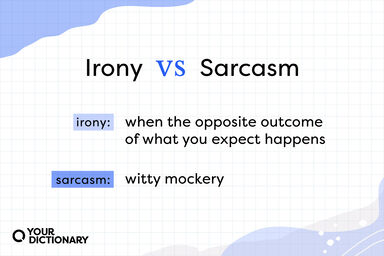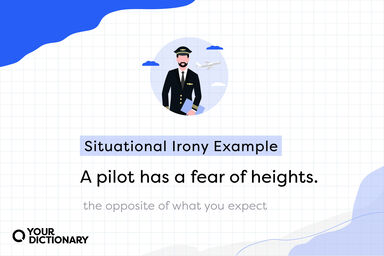Irony Definition
Other Word Forms of Irony
Noun
Origin of Irony
-
French ironie from Old French from Latin īrōnīa from Greek eirōneia feigned ignorance from eirōn dissembler probably from eirein to say wer-5 in Indo-European roots
From American Heritage Dictionary of the English Language, 5th Edition
-
First attested in 1502. From Middle French ironie, from Old French, from Latin īrōnīa, from Ancient Greek εἰρωνεία (eirōneia, “irony, pretext”), from εἴρων (eirōn, “one who feigns ignorance”).
From Wiktionary
-
iron + -y
From Wiktionary
Find Similar Words
Find similar words to irony using the buttons below.





